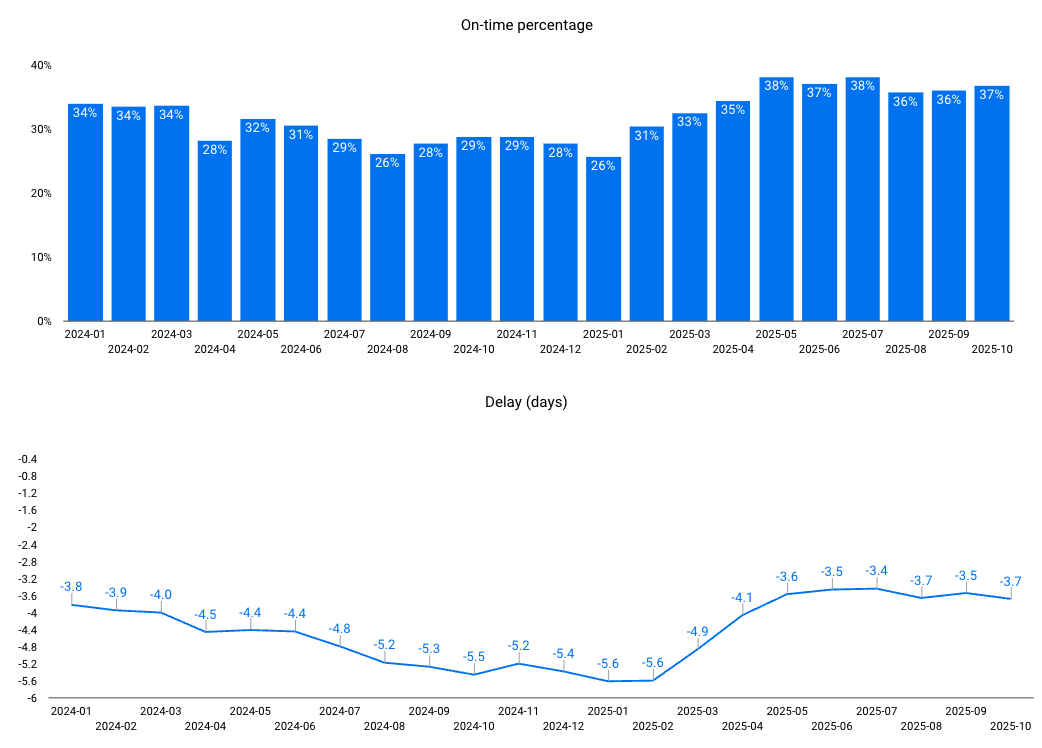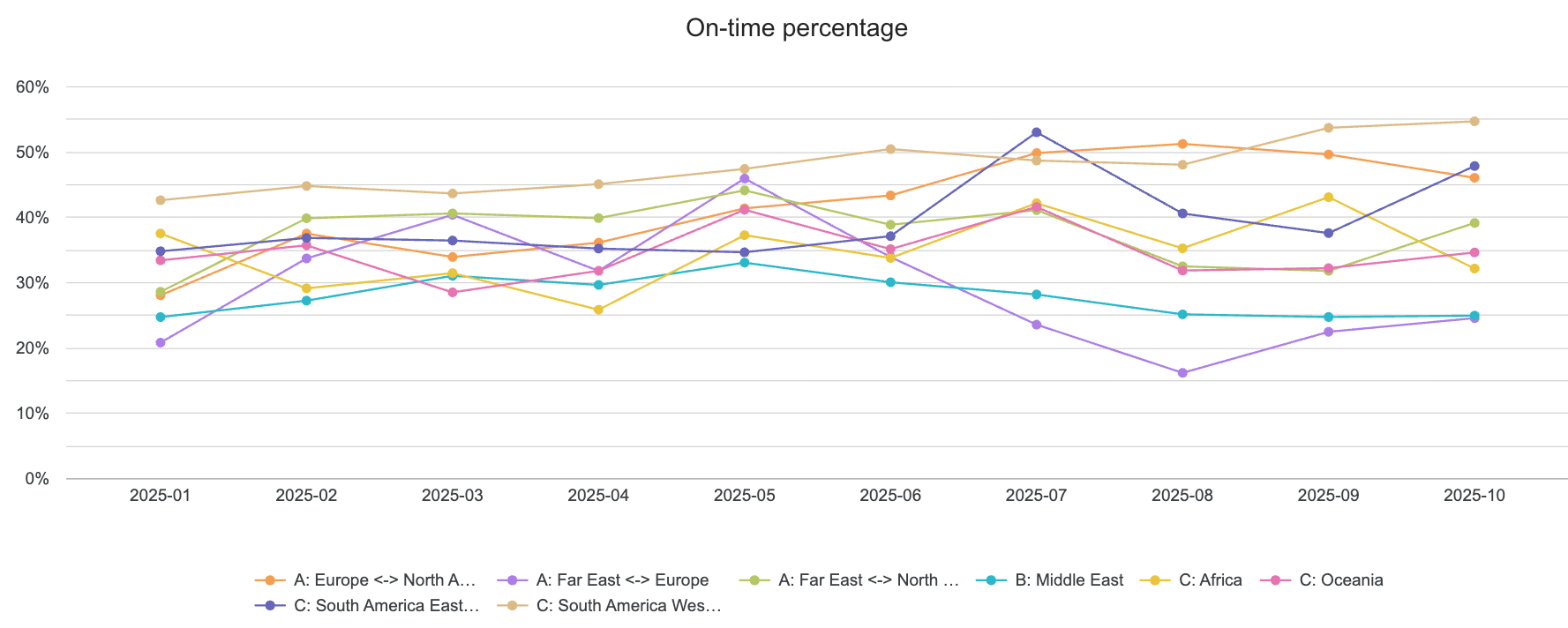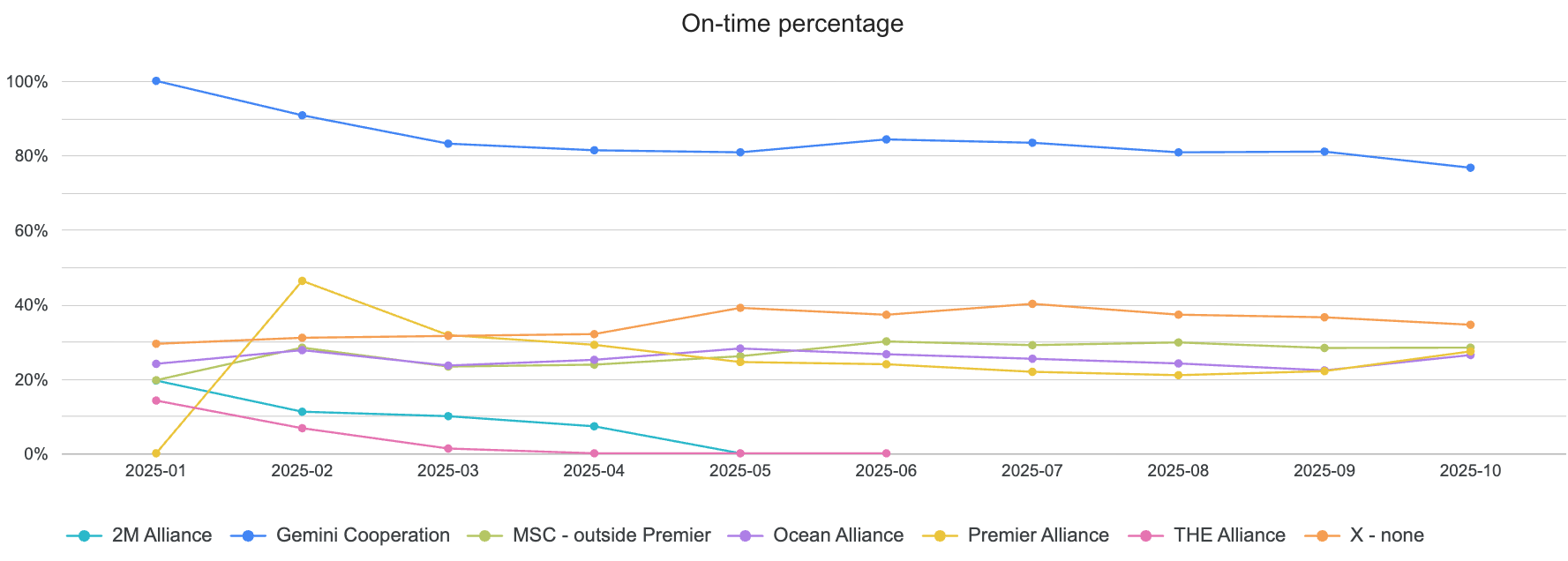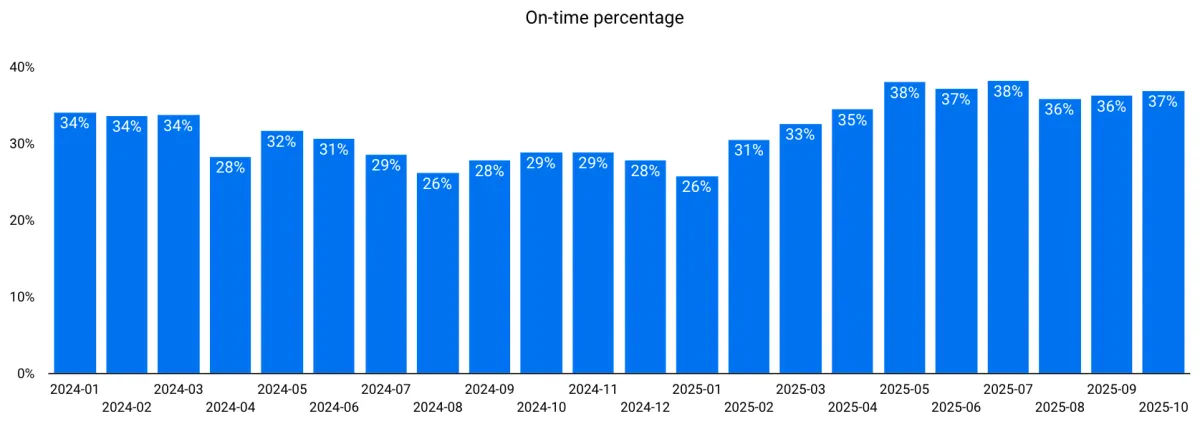Welcome to eeSea by Xeneta's monthly Schedule Reliability Scorecard (SRS) for October 2025. Be sure to join us again next week for a year in review of reliability highlights - including a look at our top performing carriers and ports!
Highlights
- Schedule reliability remains weak at 37% in October, with monthly global averages stuck below 40% since 2023
- South America East Coast surged up to 48% on-time (+33%), overtaking Europe–North America, while Far East–Europe remains the weakest trade at 24% OTP and is facing more imminent disruptions with strikes in Belgium and Italy planned this week.
- Despite a dip in October, Gemini Cooperation still vastly outperforms peers with 77% on-time and zero blanked sailings, compared to 75 (Premier) and 164 (Ocean) cancellations year-to-date.
Global
Global schedule reliability continues steady but poor; October closed at 37% and monthly averages haven't cracked the 40% ceiling since November 2023. Average delays in October are at -3.7 days delayed and thankfully continue to steer clear of –5 days or below that defined 2024 and shadowed the alliance transitions of Q1 2025.
Monthly global reliability

Trades
South America East Coast has made another resurgence in October; edging its way past Europe – North America into 2nd place at 48% on-time percentage with a 33% jump in trade reliability. Europe – North America saw a further decline down to 46% - echoing the slow but consistent decline seen since August when 51% positioned it as the global leader among trades. West Coast South America, a frequent first place holder continued to hold steady at 53% from September into October.
Far East – Europe and Middle East remain the two most reliability challenged trades, at 24% and 25% on-time percentage respectively. The possible resurgence of Suez Canal transits could finally shift the narrative of both trades, but systemic change will come with time and may at first invite more decline. As we saw with the alliance turnovers in Q1, structural overhauls often come with a downturn before positive change can take widespread effect.
Monthly trade reliability

The Africa trade, which hosted an optimistic 43% reliability in September, took a nosedive down to 32% last month. The trade has seen significant growth due to MSC’s network expansion as well as continued interest from China, particularly for exotic fruits and reefer cargo. It’s possible this heightened market activity has put further stress on key African ports like Conakry and Lome, which have already struggled with congestion and delays in the past.
Alliances
In an modest but unexpected twist, October saw top performer Gemini Cooperation and non-alliance services both decline in on-time percentage, while Premier and Ocean alliances improved. Gemini and non-alliance services shifted down to 77% and 35% respectively. For Gemini, that’s a dip of nearly 5% down from 81% in September; the biggest decline we’ve seen since the newborn alliance matured from 100% to 83% in Q1.
On the other hand, Premier and Ocean alliances closed out October neck-and-neck at 27% and 26% respectively, with a 23% increase for Premier and 18% for Ocean against September’s averages. MSC remained stable at 28% for the second month in a row, and has remained between 28-30% since June.
Monthly alliance reliability

This brief month-over-month decline aside, the gap between Gemini and its peers remains as stark as ever and is equally highlighted by alternative reliability measures like cancellation rates. Gemini has racked up an astounding 0 blanked sailings on the transpacific trade throughout 2025, excepting standard Chinese Golden Week blanks in October. In comparison, Premier Alliance has hosted 75 blanked sailings and Ocean Alliance announced a stunning 164 cancelled voyages since the start of the year.
If you want details on how you can use comprehensive, unbiased, and real-time reliability data to manage your risks and optimize costs, reach out to us at contact@xeneta.com

